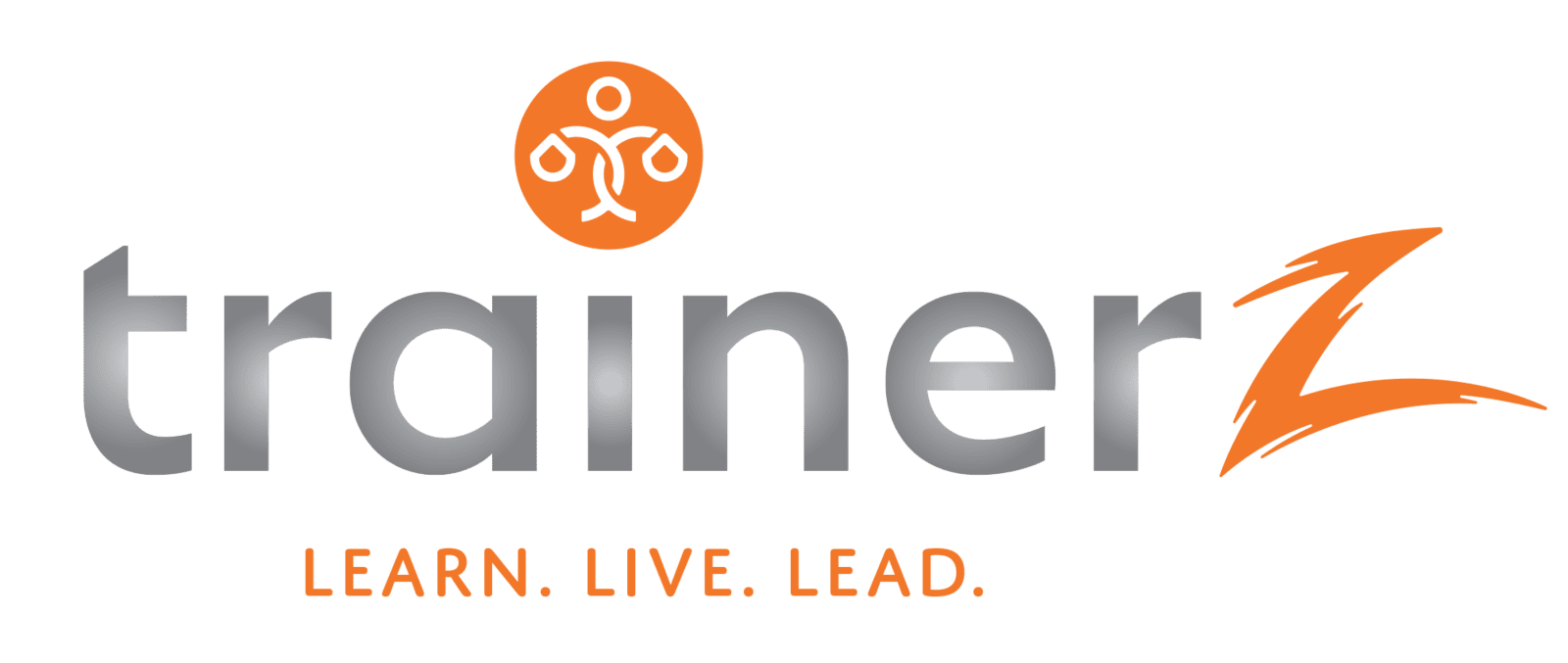Introduction
Introduction
In the dynamic and often resource-constrained world of Small and Medium Enterprises (SMEs), the strength of a team can be the single most decisive factor in a business' success or failure.
Building a successful team is not simply about hiring people—it’s about creating an environment where diverse skills, personalities, and talents coalesce to drive innovation, productivity, and growth.
In today’s competitive market, where every SME faces tight budgets and limited resources, a high-performing team can be the decisive competitive edge that propels a business from surviving to thriving.
This makes building and maintaining high-performing teams not just important, but absolutely essential.

The critical role of High-Performing Teams in SME success
The critical role of High-Performing Teams in SME success
At the heart of every successful SME lies a team that not only works well together but also drives the business forward. Team dynamics in SMEs play a crucial role in shaping organizational performance.
High-performing teams help SMEs innovate, adapt to market changes, and overcome challenges. Evidence shows that companies with strong teams often achieve higher productivity and profitability, underscoring the role of leadership in SME success and the immense SME leadership importance.
When team members understand each other’s strengths and weaknesses, they create a synergistic environment where collaboration and creativity flourish.
Building trust in SME teams and fostering a positive workplace culture are critical; these factors help improve employee behaviour in small businesses and build strong, interpersonal relationships at work. Ultimately, successful teams become the driving force behind SME growth and sustainability.

The SME Advantage: Why strong teams are your competitive edge
For SMEs, where resources are limited and each team member often wears multiple hats, building a strong team is not a luxury—it is a necessity.
SME team coaching for small business success and effective people management are essential in carving out a competitive advantage in the market.
A well-coordinated team offers several benefits
Efficiency and Productivity – In a small business, every individual’s contribution matters. When team members work in sync, overall productivity rises, directly impacting profit margins.
Innovation – A diverse team with a broad range of skills and perspectives is better equipped to solve problems creatively, thereby driving innovation through digital tools and traditional methods alike.
Flexibility – SMEs require a high degree of adaptability. A strong team that collaborates effectively can quickly adjust to market shifts, ensuring the business remains agile in the face of economic uncertainty.
Customer Satisfaction – A team that communicates well and works together is better positioned to provide excellent customer service, thereby enhancing customer retention and loyalty.
These benefits illustrate why the SME advantage often lies in building and nurturing high-performing teams that serve as the backbone of the business.

Challenges include:
Overlapping Roles – In SMEs, employees might be responsible for several functions simultaneously. This can create confusion and lead to inefficiencies.
Limited Resources – With a small workforce, the impact of each employee’s performance is magnified, making it imperative to optimize each team member’s contribution.
Diverse Skill Sets – The diversity in employee backgrounds means that understanding team members and their interpersonal relationships at work becomes essential for building effective teams.
Time Management – Balancing short-term operational needs with long-term strategic goals is difficult when every team member is juggling multiple tasks.

The SME Leader's Role: Architecting High-Performing Teams
The SME leader is not just a manager but the architect of the team’s success. As the key driver of the organization, the leader’s role is to create an environment that empowers employees, nurtures talent, and sets a clear vision for the future.
Leadership in SME teams involves more than delegating tasks; it requires a deep understanding of team dynamics in SMEs and the ability to build a cohesive unit from diverse individuals.

Key responsibilities of an SME leader include:
Key responsibilities of an SME leader include:
Setting the Vision – Defining the company’s goals and inspiring the team to work towards a common objective.
Building Trust – Implementing trust-building activities for teams and creating a safe work environment that fosters psychological safety in SMEs.
Empowering Employees – Using delegation and empowerment techniques to encourage autonomy and ownership among team members.
Facilitating Collaboration – Encouraging open dialogue, active listening, and mutual support to strengthen team bonds.
Providing Direction – Offering clear guidance and support to ensure that team members understand their roles and responsibilities, ultimately building a supportive and cohesive team culture.
These actions collectively reinforce the importance of strong leadership in achieving sustained business performance and long-term success.
Recruiting for Synergy: Building teams that complement each other
Recruiting for Synergy: Building teams that complement each other
A critical step in building successful teams is recruiting individuals whose skills, personalities, and experiences complement one another. Recruiting for synergy involves identifying talent that not only fills specific roles but also contributes to a harmonious team dynamic.
Effective recruitment strategies for SMEs include:
Identifying Key Competencies – Determining which skills are essential for your business and ensuring your team possesses a diverse mix.
Cultural Fit – Evaluating whether potential team members will thrive in your company’s unique culture.
Interpersonal Compatibility – Considering how new hires will interact with existing staff to build a strong foundation of trust and collaboration.
Flexibility and Adaptability – Ensuring that candidates can wear multiple hats and adapt to the evolving needs of a small business.
By building teams that complement each other, SME owners create a foundation for high-performing teams in SMEs that drive innovation and enhance overall productivity.
Understanding Team Dynamics: People and relationships
Understanding Team Dynamics: People and relationships
Team dynamics are at the heart of every successful business. Understanding how individuals interact, communicate, and form relationships is essential for effective team building.
In SMEs, where every interaction can significantly impact performance, mastering team dynamics in SMEs is crucial.
Important factors to consider include:
Interpersonal Relationships – The quality of human relations in SMEs and the ability to build rapport among team members.
Psychological Safety – Creating an environment where employees feel safe to express ideas, take risks, and admit mistakes without fear of negative consequences.
Employee Behaviour – Recognizing patterns in employee behaviour in small businesses to tailor management strategies effectively.
Emotional Intelligence – Leveraging emotional intelligence to understand team members’ needs, motivations, and responses, thereby improving overall team cohesion.
A deep understanding of these elements helps leaders foster a collaborative and resilient work environment that drives success.
Cultivating a Team Culture: Trust, Psychological Safety, Communication, and Shared Goals
Cultivating a Team Culture: Trust, Psychological Safety, Communication, and Shared Goals
The culture within an SME is a powerful determinant of success. Cultivating a positive team culture means focusing on creating a safe work environment for SMEs where trust and collaboration are paramount.
This involves:
Building Trust – Implementing trust-building exercises for teams and fostering transparency at all levels.
Ensuring Psychological Safety – Promoting an atmosphere where team members feel secure in expressing ideas and concerns.
Establishing Clear Communication – Developing communication strategies for teams that encourage openness, active listening, and constructive feedback.
Aligning Goals – Setting shared objectives that unite the team and create a sense of purpose.
Creating a Positive Workplace Culture – Using techniques to boost team morale, such as regular recognition programs and team-building activities.
By emphasizing these elements, SME leaders can create a strong foundation for a supportive and motivated team, ultimately driving both short-term performance and long-term sustainability.

Unlocking Potential: Motivation and empowerment in SME teams
One of the greatest assets a leader can provide is the ability to motivate and empower team members. Team motivation in SMEs is critical because it drives engagement, increases productivity, and cultivates innovation.
Key strategies for unlocking potential include:
Empowerment Through Delegation – Empowering employees by assigning meaningful responsibilities and trusting them to make decisions.
Inspiring Leadership – Using inspirational leadership communication to articulate a clear vision that motivates the team.
Recognition and Rewards – Implementing systems for providing constructive feedback and recognition to celebrate successes and encourage continuous improvement.
Setting Clear Goals – Establishing measurable targets and ensuring that everyone understands their role in achieving them.
These strategies not only boost team morale but also enhance overall business performance by creating a work environment where every employee is driven to contribute to the company’s success.
Leveraging Diversity: Building inclusive and innovative SME teams
Leveraging Diversity: Building inclusive and innovative SME teams
Diversity and inclusion are powerful drivers of innovation. In SMEs, a diverse team can bring fresh perspectives, creative problem-solving, and improved decision-making. Building diverse teams in SMEs is essential for staying competitive in a global market.
Key considerations include:
Recruiting Diverse Talent – Proactively seeking candidates from various backgrounds and with different skill sets.
Inclusive Leadership – Fostering an environment where all team members feel valued and included.
Training and Development – Implementing diversity training for SMEs to enhance awareness and promote equality.
Benefits of Diversity – Recognizing that inclusive workplace practices lead to higher employee engagement and better overall performance.
Innovation Through Inclusion – Encouraging a culture where different viewpoints are welcomed, leading to innovative solutions and improved team performance.
Leveraging diversity not only strengthens the team but also drives the long-term sustainability of the SME.
Addressing Conflict Constructively: Turning challenges into growth
Addressing Conflict Constructively: Turning challenges into growth
Conflict is inevitable in any team environment, especially in small businesses where roles and responsibilities may overlap. However, when managed effectively, conflict can lead to positive outcomes. Conflict resolution in SME teams involves establishing clear guidelines for addressing disputes and encouraging open dialogue.
Effective strategies include:
Mediation Techniques – Using mediation skills for team leaders to facilitate fair resolutions.
Conflict Management Training – Providing training on how to handle disagreements constructively.
Open Communication – Encouraging team members to voice concerns early, preventing conflicts from escalating.
Regular Feedback – Implementing feedback mechanisms to address issues before they become major problems.
Team-Building Activities – Using team building strategies to foster collaboration and mutual respect.
By turning conflicts into opportunities for growth, SMEs can enhance team cohesion and maintain a healthy, productive work environment.

Investing in Training, Mentorship, and Coaching:
Skills and tools for SME team success
Investing in Training, Mentorship, and Coaching:
Skills and tools for SME team success
Effective leadership and team success are not innate—they are developed through continuous learning and mentorship. SME team training and development are critical components for building high-performing teams.
These following aspects are key considerations:
Leadership Coaching – Engaging in coaching sessions to refine leadership skills.
Mentorship Programs – Leveraging mentorship to gain insights and advice from experienced entrepreneurs.
Professional Development – Investing in workshops, online courses, and training programs that enhance team capabilities.
Team Coaching Techniques – Implementing regular team coaching to align goals and improve performance.
Skill Development – Focusing on key skills such as effective communication, problem-solving, and conflict resolution.
By investing in mentorship for small business teams and employee development programs for SMEs, you can ensure that your team continues to grow and adapt, driving long-term success.
Building a Sustainable Team Culture: Metrics, feedback, and ongoing refinement for SME growth
Building a Sustainable Team Culture: Metrics, feedback, and ongoing refinement for SME growth
Sustainable growth in SMEs is largely dependent on a team culture that evolves over time. Building a sustainable team culture in SMEs involves establishing metrics and feedback loops that allow you to measure success, identify areas for improvement, and continually refine your approach.
Key strategies include:
Setting Clear Performance Metrics – Using performance management for SMEs to track team productivity and individual contributions.
Regular Feedback – Implementing feedback mechanisms for teams to provide constructive, actionable insights.
Team Recognition Programs – Rewarding achievements and recognizing the efforts of team members to boost morale.
Continuous Improvement – Regularly reviewing and refining your team’s processes to adapt to changing business needs.
Building a Supportive Environment – Fostering a culture where innovation, trust, and collaboration are valued and maintained.
This ongoing refinement process ensures that your team remains agile, motivated, and aligned with your strategic objectives, ultimately contributing to the SME’s overall growth and sustainability.
Conclusion
Conclusion
Building successful teams is one of the most critical factors in the success of any SME. High-performing teams are the backbone of innovative, resilient, and scalable businesses, particularly in the context of SMEs where every member plays multiple roles.
The insights presented in this isle highlight that understanding team dynamics, fostering trust, empowering employees, and investing in continuous learning are not optional—they are essential.
SME leaders must embrace their role as architects of team success, continually adapting their leadership style, building strong interpersonal relationships, and creating a culture that values collaboration and inclusivity.
By doing so, you not only drive immediate business performance but also lay the groundwork for sustainable long-term growth.
As you strive to grow your business, remember that while challenges such as conflict, limited resources, and the need for ongoing training exist, the rewards of building a cohesive, motivated, and innovative team far outweigh the disadvantages.
Ultimately, a high-performing team is the most important asset in your entrepreneurial arsenal—a key contributor to your success and a catalyst for turning your SME into a thriving enterprise.
For any entrepreneur aiming to build a successful SME, investing in leadership and team development is not just beneficial—it is imperative. Cultivating strong teams will not only improve productivity and innovation but also create an environment where your business can adapt to the ever-changing market landscape.
In today’s competitive environment, your ability to build, lead, and sustain a high-performing team is the foundation upon which you will achieve financial stability and long-term success.
Embrace the challenge of team building with the understanding that every effort you make to enhance your team’s performance will translate into greater business achievements. The path to success is paved with strong leadership, trust, and collaboration.
Commit to continuous improvement, leverage the power of diversity and inclusion, and lead by example.


